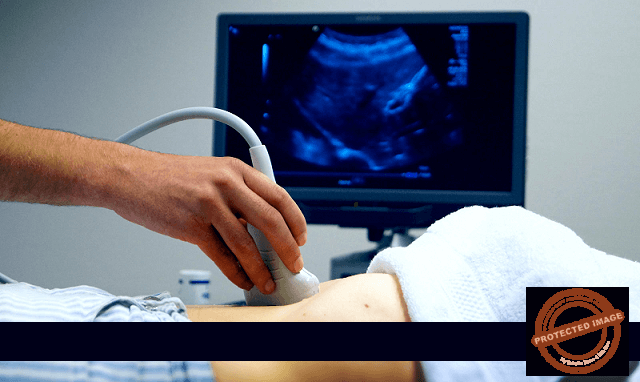Ultrasound scans, also known as sonography, have revolutionized medical diagnostics, particularly in pregnancy. This non-invasive procedure employs high-frequency sound waves to capture real-time images from inside the body. In Nigeria, ultrasound scans are readily available in various medical centers and clinics, making them one of the most affordable medical procedures. However, factors like the body part being scanned and the type of healthcare facility can influence the cost. Generally, the procedure ranges from N5,000 to N20,000, inclusive of any post-scan medications.
What to Know About Ultrasound Scans
Ultrasonography is a crucial diagnostic tool that employs sound waves to aid in medical diagnoses. A skilled ultrasound technician conducts the procedure, providing invaluable insights for the attending healthcare professional. Typically, a radiologist oversees the scan and delivers the results to the physician.
Different medical specialists utilize ultrasound scans for various purposes. Obstetricians rely on them to monitor the fetus during pregnancy, while surgeons and emergency doctors use ultrasound to assess abdominal concerns. During the scan, a transducer projects and collects sound waves, facilitated by a gel applied to the skin. This gel ensures accurate transmission through the skin, allowing the specialist to evaluate specific structures and address the patient’s concerns.
Unlike some imaging methods, ultrasound does not involve radiation, making it a preferred choice for observing a developing fetus during pregnancy. It enables doctors to identify issues with organs, vessels, and tissues without the need for incisions.
Preparing for an Ultrasound Scan
Preparation for an ultrasound scan depends on the area being examined. For abdominal scans, patients are typically advised to fast for 8 to 12 hours before the procedure to ensure clear imaging. In some cases, a fat-free meal may be recommended the night before for scans of the gallbladder, liver, pancreas, or spleen. It’s important to continue drinking water and taking prescribed medications as usual.
Inform your healthcare provider about any medications, over-the-counter drugs, or supplements you are taking. Follow your doctor’s instructions and feel free to ask any questions you may have about the procedure. Ultrasound scans pose no significant risks, as they do not involve radiation.
Uses of Ultrasound Scans
Ultrasound scans serve multiple purposes, including diagnosis, treatment, and guidance during procedures like biopsies. They are instrumental in examining internal organs such as the liver, kidneys, pancreas, thyroid gland, testes, and ovaries. Additionally, ultrasound scans can differentiate between tumors and fluid-filled cysts, as well as diagnose soft tissue, muscle, blood vessel, tendon, and joint issues.
Doppler ultrasound, a specialized type, assesses blood flow and pressure in vessels. This technique measures the speed of blood flow and identifies any obstructions. An echocardiogram, a form of Doppler ultrasound, generates images of the circulatory system and measures blood flow and cardiac tissue movement.
Conclusion
Ultrasound scans have become an indispensable tool in modern medicine, particularly in pregnancy care. In Nigeria, these scans are widely accessible and relatively affordable, with costs varying based on factors like the body part being examined and the type of healthcare facility. Prior preparation, including fasting and disclosing medications, ensures the best results. With its non-invasive nature and absence of radiation, ultrasound scans continue to be a preferred method for various medical diagnoses.

